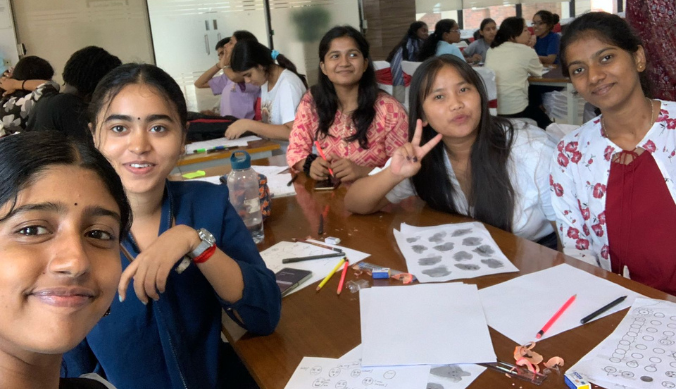COP28 in Dubai: Charting a Course for Global Climate Action and Sustainability
This reflection aims to delve deeply into the significant outcomes of COP28 and their broader implications, using the comprehensive information provided to analyse the pivotal shifts and challenges ahead.
The COP28 climate conference in Dubai, held in December 2023, was a watershed moment in global environmental diplomacy, marking a significant shift in the international community’s approach to combating climate change. As a final-year undergraduate student at Ashoka University, my participation in this conference offered profound insights into the dynamics of global climate negotiations and the emerging role of various stakeholders, including businesses, in addressing climate change.
Introduction to COP28: A Pivotal Summit
The COP28 climate talks, set against the backdrop of the hottest year on record, began with the historic establishment of a new fund to address the severe losses and damages vulnerable countries face from climate impacts. This initiative marked a significant acknowledgement of the disproportionate effects of climate change on different regions of the world. The conference concluded with the first international agreement to directly address the primary driver of climate change-fossil fuels.
Fossil Fuels and Clean Energy: The UAE Consensus
One of the most significant outcomes of COP28 was the UAE Consensus, which called for a transition away from fossil fuels in energy systems. This agreement marked the first time the term “fossil fuels” appeared in a COP’s formal outcome, signalling a historic shift in the international community’s stance on the primary source of greenhouse gas emissions. The consensus included an agreement to triple the world’s renewable energy capacity and double its energy efficiency by 2030, reflecting an ambitious global commitment to a sustainable energy future. However, it highlighted the financial and policy challenges in achieving these goals, particularly for developing countries.

Loss and Damage Fund: A Milestone for Climate Justice
The operationalisation of the Loss and Damage Fund on the first day of the summit was another pivotal achievement. Designed to assist climate-vulnerable countries in coping with impacts beyond their adaptive capacity, the fund represented a hard-fought victory for developing nations. While the initial funding commitments were a positive step, they fell short of the estimated needs, underscoring the necessity for more significant financial deeds and innovative funding sources in the future. Several countries have pledged approximately $700 million to contribute to the fund. While this support is appreciated, it is relatively small as compared to the estimated $580 billion in climate-related damages that vulnerable countries might experience by 2030.
Global Goal on Adaptation: Progress and Challenges
The framework established for the Global Goal on Adaptation marked progress in defining and measuring adaptation targets. However, the lack of quantified targets and financial support for developing countries remains a critical gap. The financial challenges in adaptation and the broader clean energy transition were acknowledged but not adequately resolved, necessitating focused discussions at future conferences.
National Climate Plans (NDCs): Enhancing Ambition
The outcome of the Global Stocktake at COP28 emphasises the need for countries to proactively submit updated Nationally Determined Contributions (NDCs) well before COP30 in 2025. In the upcoming revision, nations are called upon to refine their targets for 2030 and introduce new goals for 2035. This decision underscores the imperative for these revised NDCs to be considerably more ambitious. It aligns with the findings of the IPCC, which highlight the necessity of achieving a 60% reduction in global greenhouse gas emissions from 2019 levels by 2035 to limit global warming to 1.5 degrees Celsius (2.7 degrees Fahrenheit). Furthermore, alongside the enhancements to their 2030 emissions targets, the COP28 outcome stresses that the next set of NDCs should encompass strategies to augment existing emission reduction efforts. These strategies should encompass plans and priorities related to adaptation, just transition initiatives, and addressing loss and damage. Additionally, the outcome underscores the importance of NDCs reflecting comprehensive transformations across various sectors, including the promotion of clean energy, the conservation of nature, improvements in road transport, and more.
Carbon Markets and Other Key Issues
COP28 refrained from reaching a consensus on the regulations governing carbon markets, as outlined in Article 6 of the Paris Agreement. This decision has left crucial questions regarding international carbon trading unanswered. While it may seem like carbon markets are in a state of uncertainty, this approach was taken to prevent the adoption of rules that could compromise environmental integrity and transparency. The key areas where countries couldn’t reach an agreement include the process for authorising emissions reductions for transfer to other countries, reviewing confidential information and rectifying inconsistencies in country reports, defining cooperative approaches in carbon trading, and identifying eligible activities for carbon markets. Additionally, recommendations on methodologies and removals were deferred to COP29. Negotiations will resume in Azerbaijan, with efforts to develop tools for assessing risks and establishing a registry for carbon credits during the interim period.

Sectoral Engagement: ALTÉRRA Initiative
I engaged with key climate process stakeholders, including multilateral development banks, fossil fuel regulators, universities, and youth groups. A key but silent development for ESG enthusiasts like me trusting in the potential of private capital-led green finance was the introduction of ALTÉRRA, an innovative climate finance initiative. Backed by a $30 billion commitment from the UAE, ALTÉRRA’s goal is to mobilise $250 billion by 2030 for climate action, focusing on emerging markets and developing economies (EMDEs). It aims to revolutionise climate-conscious investing and lead the private sector in tackling climate challenges. ALTÉRRA, led by Lunate and chaired by Dr Sultan Al Jaber, is set to expedite climate finance deployment, particularly in the Global South, including Least Developed Countries and Small Island Developing States.
Reflection and Moving Forward
The outcomes of COP28 represent both a significant step forward and a reminder of the work that remains. The conference tackled the pressing issues of our time, from the transition away from fossil fuels to addressing loss and damage, adaptation, and the role of various sectors in climate action. However, the need for more detailed plans, increased financial commitments, and the actual implementation of these agreements remains critical.
As a student representing Ashoka University at this conference, I witnessed firsthand the complexities of global climate negotiations and am deeply thankful to the Hon’ble Vice Chancellor and the LiveGreen@Ashoka initiative for fully supporting my participation. The experience underscored the importance of collaborative efforts, the interplay of diverse interests, and the urgent need for concrete action. The conference’s outcomes provide a roadmap for future climate action, setting ambitious targets and frameworks. However, the true test lies in the effective translation of these commitments into national policies, investments, and actions that will shape our collective response to the climate crisis. The role of universities, youth groups, and the private sector, as evidenced by initiatives like ALTÉRRA, is increasingly crucial. These entities bring innovation, fresh perspectives, and the potential for mobilising resources in novel ways. COP28 in Dubai set new directions and raised critical issues to the forefront of the global climate agenda.
As we move forward, the challenge lies in maintaining the momentum, ensuring that commitments translate into action, and continuously striving for inclusive, equitable, and sustainable solutions to the climate crisis. The decisions and commitments made at COP28 are a strong foundation, but their success will ultimately be measured by the tangible actions taken in the coming years. The journey ahead is complex and challenging, but the COP28 outcomes have laid a critical pathway for a more sustainable and climate-resilient world.
Study at Ashoka













